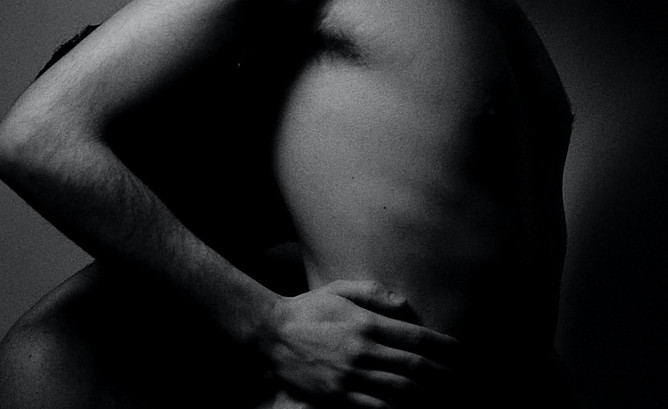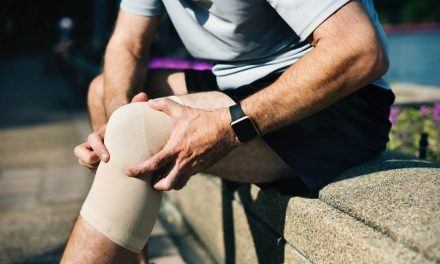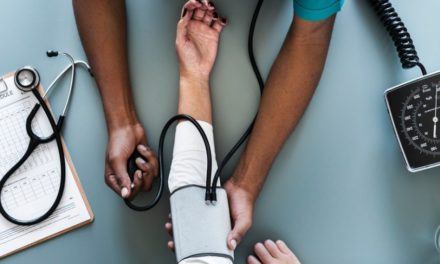Kidneys are bean-shaped organs, which are considered as one of the most vital organs of the human body. They filter wastes from our body and excrete them through the urinary tract. In this article, we will be exploring the causes for Kidney-related Back Pain in One Side vs Both Sides (left and right).
Kidney pain is referred to as a sharp pain or dull ache on either side of the back, both sides of the back or flank of our body. Kidney pain is medically known as renal pain.
But people sometimes cannot distinguish between kidney pain and back pain. The characteristic difference between the two is that the kidney pain is usually higher, and it is located under the ribs. In contrast, muscular back pain is commonly found on the lower backside of the body.
There are a few symptoms of kidney pain which you should look for in distinguishing it.
- Fever.
- Painful urination.
- Flank pain.
- Nausea.
- Vomiting.
There are many reasons which might cause kidney pain, such as:
- dehydration,
- kidney infection,
- kidney stones,
- kidney cysts,
- polycystic kidney disease,
- inflammation,
- blockage of blood to the kidney,
- kidney bleeding and
- kidney cancer.
Let us have a look now at the explanation regarding potential causes of kidney pain.
Causes of Kidney Pain
1. Dehydration
Unable to drink the proper amount of water can lead to pain in one or both kidneys. This is common among people with diabetes, where chronic dehydration is a prevalent condition. Chronic dehydration may lead to deposition of wastes inside kidney ultimately leading to kidney diseases resulting in kidney pain.
The symptoms include:
- Pain or discomfort on the side of the body or back. Can be mainly both sides.
- Tiredness or fatigue.
- Food cravings.
- Facing difficulty to concentrate.
Treatment:
- You need to drink plenty of water to stay hydrated, including fruits and vegetables that are rich in water and minerals.
- If the condition recurrent due to poorly managed diabetes, focus on managing the primary disease (i.e. diabetes) well.
- The amount of water you need to drink depends on your exercise routines, climate, age, lifestyle and diet.
- Dehydration can be identified usually by checking the color of urine. Dark yellow urine indicates you need for more water intake.

Tip: Here is the Diabetes Complications Timelines, which you should keep in mind. Remember, dry mouth is a sign of diabetes too.
2. Kidney Infection
Infections of the kidney are a common cause of back pain. Due to the entrance of unhealthy bacteria within our body, an infection commonly named ‘Urinary Tract Infection (UTI)’ is often seen in the bladder or urethra. This infection can spread from one kidney to the other.
A kidney infection is also called pyelonephritis, and especially pregnant women are at higher risk.
The symptoms include:
- Back pain or one-sided (left or right) pain.
- Stomach or groin pain.
- Fever or chills.
- Nausea or vomiting.
- Frequent urination.
- Pain or burning while urinating.
- Strong smelly urine.
- Blood or pus in the urine.
- Confusion
Treatment:
You have to consult a doctor as soon as possible if you experience any of the above symptoms. Proper treatment is mandatory for a kidney infection.
The doctor will prescribe proper antibiotics, and if the infection is out of control, it may damage the kidneys.

3. Kidney Stones
Kidney stones are also called renal lithiasis.
Kidney stones are usually small and hard crystals that are made up of salt and minerals such as calcium. Kidney stone causes pain either in the kidney or other places within the urinary tract when it passes through the way of urine and gets stuck.
The symptoms are:
- Pain in one or both testicle (for men).
- Pain in one or both sides of the back
- Pain while urinating.
- Difficulty in urinating.
- Sharp pain in the stomach and groin.
Treatment:
Kidney stones may cause pain, but they are not much harmful if the crystals are minor. Drinking plenty of water can help pass the stones. A kidney stone can be cured with little treatment and pain relief drug. However, if the stones are larger, surgery might be necessary.

Tip: Did you know Chinen Salt is a better option for your kidneys?
4. Polycystic Kidney Disease
The polycystic kidney disease is when a lot of cysts is deposited the one or both kidneys.
The National Kidney Foundation notes that polycystic kidney disease is the fourth highest reason for kidney failure. This disease may happen to adults of all races. At the age of 30 or above the symptoms are commonly seen.
The symptoms include:
- Stomach swelling.
- Frequent kidney infections.
- High blood pressure.
- Pounding or fluttering heartbeat.
- Side or back pain.

Treatment:
No specific scientifically proven treatment available for polycystic kidney disease. The main aim of the treatment is to control the blood pressure to prevent further kidney infections. Moreover, pain management and drinking plenty of water help to handle the disease.
Tip: Lecithin supplements could help you manage hypertension well.
5. Inflammation
Inflammation in kidneys is mainly caused by chronic kidney conditions such as diabetes and lupus.
One type of kidney inflammation is glomerulonephritis. Long time inflammation may cause serious kidney damage.
The symptoms are:
- High blood pressure
- Pink or dark-coloured urine
- Foamy urine.
- Stomach, hand, feet and face swelling.
Treatment:
Treating inflammation depends on the cause of it. If a person has high diabetes, then controlling the blood sugar levels can help treat the kidney inflammation properly. Doctors can also prescribe steroid drugs.

6. Blockage of Blood Supply to Kidneys
A blockage of blood supply to the kidney is known as renal infarction or renal vein thrombosis. This mainly occurs when the blood supply from and to the kidney is stopped. There are many causes, the main being due to a blood clot.
Symptoms include:
- Stomach (abdomen) tenderness.
- Lower back pain or ache.
- Severe side or flank pain.
- Blood in the urine.
Treatment:
The main treatment is to stop the blood clot, which can be done by administering the anticlotting drug. Such medication dissolves the blood clots and stops from recurring furthermore.
7. Kidney Bleeding
Diseases of the kidney, as well as an injury or a blow to the kidney, can lead to bleeding inside the kidney. Bleeding is one of the prominent causes of kidney pain.
The symptoms are:
- Blood in the urine.
- Nausea or vomiting.
- Stomach pain or swelling.
- Side and low back pain.
Treatment:
- Pain relief drug and rest might help get rid of the condition and to recover.
- Surgery might be needed to stop massive kidney bleeding.
- Remember, urgent attention is required for such bleeding, so the best option is to visit your nearest hospital.
8. Kidney Cancer
Kidney cancer is not much seen. But it mainly targets the people above the age of 60.
Men, compared with women and children, are more likely to have cancer of the kidney. Renal cell carcinoma is one of the commoner types of kidney tumours then later possibly could turn into cancer.

The symptoms are:
- Loss of appetite.
- Blood in the urine.
- Weight loss.
- Fever.
- Tiredness.
- Pain in the side or back.
Treatment:
The treatment of kidney cancer is like other types of cancers; chemotherapy and radiotherapy.
Chemotherapy drugs and radiation is applied, and sometimes surgery is needed to remove tumor or the whole kidney.
Conclusion
Since the kidney is a vital organ of our body, we need to take proper care of it and drink plenty of water. Maintaining a proper balanced diet and exercise can help us keep healthy kidneys. Moreover, diabetes is one of the worst enemies of kidneys, and maximum kidney-related diseases are due to diabetes. Maintenance of blood pressure is another treatment for any kidney related disease or pain.
Lastly, we should avoid smoking in order to have a healthy kidney and avoid painkillers as much as possible. As a result, we can maintain a healthy and proper functioning kidney.









0 Comments